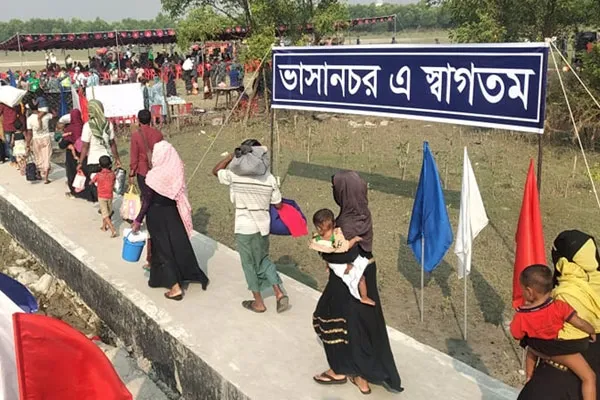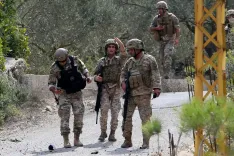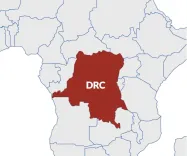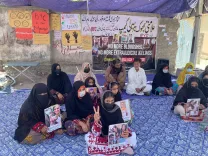What Steps is Bangladesh Taking for the Repatriation of Rohingyas?

Synopsis
Key Takeaways
- BNP's appeal for increased diplomatic efforts
- Over 1.4 million Rohingyas currently in Bangladesh
- Call for international community involvement
- World Refugee Day highlights humanitarian issues
- Importance of safe and dignified repatriation
Dhaka, June 20 (NationPress) The Acting Chairman of the Bangladesh Nationalist Party (BNP), Tarique Rahman, urged the interim government led by Muhammad Yunus to enhance diplomatic initiatives and apply pressure on Myanmar to enable the safe, dignified, and voluntary repatriation of Rohingyas who have found refuge in Bangladesh.
In a post on social media commemorating World Refugee Day, Rahman highlighted the urgency of addressing the Rohingya refugee crisis, labeling it as one of the world's most severe humanitarian emergencies.
"On this World Refugee Day, we express our solidarity with millions of individuals forcibly displaced worldwide. For Bangladesh, this is not merely a global concern; it is our reality. With over 1.4 million Rohingyas currently sheltered in Cox’s Bazar, Bangladesh is committed to aiding displaced Rohingyas. However, this crisis continues to escalate to unsustainable levels," stated the BNP leader.
"We call on the interim government to amplify diplomatic efforts and maintain ongoing pressure on Myanmar for the safe, dignified, and voluntary repatriation of the Rohingyas. The international community must ensure that all parties act on this issue, as the crisis persists unabated.
"Let us reaffirm our commitment to establishing and adhering to peaceful and just systems that guarantee no refugee is left behind during their return home," he added.
World Refugee Day, an international observance established by the United Nations, honors refugees around the globe. Observed annually on June 20, this day celebrates the resilience and bravery of individuals who have fled their home nations to escape conflict or persecution.
The Rohingyas, an ethnic Muslim minority in Myanmar's northern Rakhine State, border Bangladesh. As reported by the United Nations High Commissioner for Refugees (UNHCR), since August 2017, widespread violence, armed assaults, and human rights abuses have forced hundreds of thousands of predominantly Muslim Rohingyas to flee to Bangladesh, particularly to the Cox's Bazar area.
Nearly one million Rohingya refugees reside in Bangladesh, with the majority in the Cox's Bazar region, which hosts the world's largest refugee camp. The UN has described the Rohingyas as the "most persecuted minority in the world."
The Rohingyas depend entirely on humanitarian aid for protection, sustenance, water, shelter, and healthcare, living in temporary accommodations within highly crowded camp environments. Most are located in and around Kutupalong and Nayapara refugee camps, some of the largest and most densely populated refugee camps globally.
Recently, a proposed humanitarian corridor into Myanmar's Rakhine State, passing through Bangladesh to deliver aid to the crisis-stricken region, has emerged as a contentious issue in the South Asian nation.
Last month, Bangladesh's National Security Advisor, Khalilur Rahman, dismissed any possibility of a humanitarian corridor through Bangladesh for Myanmar, stating the government led by Muhammad Yunus has not discussed nor intends to entertain such a proposal with any party.
"We have not engaged in discussions with anyone regarding a corridor for Myanmar through Bangladesh, and we will not even consider it," Rahman remarked during a media briefing at the Foreign Service Academy in Dhaka.
Previously, Yunus communicated via social media from the Chief Advisor's account, emphasizing that there has yet to be any provision of aid to Rakhine, as it necessitates consent from all relevant parties and satisfaction of numerous prerequisites common in other humanitarian aid scenarios globally.
Yunus asserted that Bangladesh has been bearing the responsibility of sheltering over 1.2 million forcibly displaced Rohingyas from Myanmar and cannot afford another influx of refugees.









